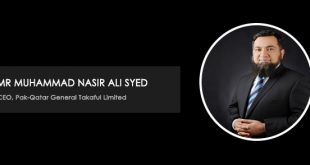Presently, Habib Bank Limited (HBL) had proclaimed its contract with Barclays Bank PLC to acquire Barclays banking business in Pakistan. This acquisition was accepted through the State Bank of Pakistan (SBP) and from June 15, 2015 the country business of Barclays Bank PLC has been amalgamated with and into Habib Bank.
HBL now has worldwide footprints in 29 states counting China. Habib Bank works intimately with institutions such as ICBC to give its customers access to Chinese businesses and financial sector. Global operations were enlarged to include the Oman, Belgium, Seychelles, USA, Singapore, Maldives and the Netherlands. HBL serves a customer base of over 7.5 million by branch network of almost 1,600 branches and a network greater than 1,550 ATMs worldwide.
In April 2015, ICBC (industrial and commercial bank of China) and HBL, joined hands for organizing industrial zones in Pakistan. This measure was introduced in an investment conference placed in Suzhou-China. The main agenda of the conference was to make Chinese firms aware of the opportunities in Pakistan to produce synergies and partnerships amongst business community of both states. Such a measure is also predicted to endorse economic growth, attract overseas investment, modernize the industrial base and consequence in transfer of technology for the country.
This plan of developing industrial zones in Pakistan was incubated during 2013.
Historically, HBL organized operations in the country during 1947 and shifted its head office to Karachi. The Bank’s first international branch was organized in Colombo, Sri Lanka during 1951 and Habib Bank Plaza was constructed during 1972 to commemorate the bank’s 25th anniversary.
With a local market share of above 40 percent, Habib Bank was nationalized during 1974 and it continued to dominate the commercial banking sector with a key market share in inward foreign remittances (55 per cent) and loans to small industrial units, farmers and traders.
On December 29, 2003 Pakistan’s Privatization Commission proclaimed that Government of Pakistan had officially granted AKFED (Aga Khan Fund for Economic Development) rights to 51 per cent of the shareholding in HBL, against an investment of Rs22.409 billion. On February 26, 2004, management control had handed over to AKFED. Now HBL corporate banking group consists of a seasoned team of RMs (relationship managers) to meet the demanding service standards of huge corporations.
A lengthy history of financing and nurturing relationships in the country has provided the bank an exclusive insight, enabling the management to give timely and effectual financial solutions for their customers to meet the rising issues of a worldwide economy.
Moreover, the bank’s commercial banking group goals medium sized firms with a turnover of at least Rs50 million. The bank’s business units are situated in Faisalabad, Sialkot, Gujranwala, Karachi, Lahore and Peshawar.
Since commencement to date the management of the bank mainly focuses to provide the safest customer services and also on balance sheet indicators.
Recently, the bank has registered a post-tax profit of Rs10.0 billion for the 3-month closed March 31, 2015, showing a progress of 62.7 per cent over the corresponding period previous year. Consequently, EPS (earnings per share) for the quarter grew to Rs6.73 as compared Rs4.12 for the 1st quarter of 2014. HBL stayed focused on enhancing its deposit mix and has been able to raise the ratio of current accounts to 34.7 per cent in March 2015, as against to 34.2 per cent in December 2014. Average current accounts for the 1st quarter of 2015 increased by 23 per cent over the same period and, along with a falling rate environment, resulted in a 79 bps reduction in the cost of deposits over 1st quarter of 2014. This lessening, coupled with a repositioning of the fixed income portfolio from short term to long term in 2014, resulted in a 60 bps progress in margins.
|
HBL CREDIT CARD
|
||
|---|---|---|
|
GOLD CARD
|
.
|
GREEN CARD
|
|
Rupees
|
Minimum gross salary requirements
|
Rupees
|
|
50,000
|
Salaried individuals
|
15,000
|
|
180,000
|
Self-employed business persons/professionals
|
25,000
|
|
Rupees
|
Credit limit range
|
Rupees
|
|
150,000
|
Minimum
|
20,000
|
|
500,000
|
Maximum
|
149,000
|
With a 17 per cent development in the average balance sheet over the similar period last year, Net Interest Income grew by 33 per cent to Rs19.2 billion for the 3-month closed March 31, 2015. Non mark-up income grew by 44 per cent to Rs7.8 billion for the quarter closed March 31, 2015, as the Habib Bank realized some capital gains.
Fees and commissions also grew by 16 percent over the last year 2014, with Bancassurance income greater than doubling, and great contributions from investment banking and social payments. Administrative expense progress for the quarter was 7.4 per cent YoY (year-on-year), as a consequence of which the cost/income ratio fell to 39.4 per cent as against to 49.7 per cent in first quarter of 2014.
Provisions grew chiefly as a consequence of a conservative outlook taken by HBL on one of its investments also the settlement of a long outstanding dispute. The consolidated CAR enhanced from 16.2 per cent in December last year to 16.7 per cent in March ongoing year because of strong internal capital generation. Tier 1 CAR enhanced from 13.3 per cent to 13.5 per cent over the corresponding period, reflecting the healthy capital position of the Bank. Habib Bank’s ROA enhanced from 1.4 per cent in first quarter of 2014 to 2.1 per cent in first quarter of 2015, while the ROE enhanced to 26.7 per cent.
In April, 2015 the management of the bank has declared a first interim cash dividend of Rs3.5 per share for the quarter ended March 31, 2015. No doubt the bank is the largest domestic multinational bank in the country providing a broad range of customer services in Pakistan and abroad.
 PAGE Blog Business Weekly Magazine
PAGE Blog Business Weekly Magazine

